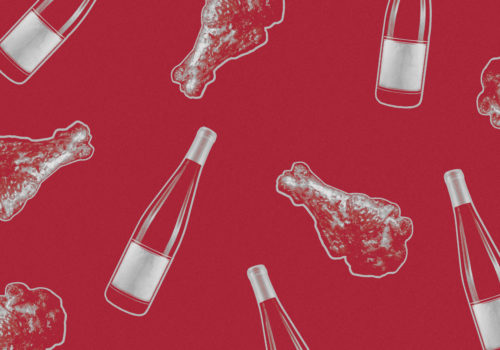This is why no one wants to work in hospitality anymore
Words: Shamim de Brún
Images: Shutterstock
The hospitality industry has a staffing problem. It seems incongruous that a large slice of hospitality will not operate at total capacity now when most public health constraints have been removed. Moreover, so few people want to work in the service industry that it is in crisis.
The crisis has even come for the higher end. Michelin starred restaurants that historically pay better than most are struggling now because they rely on well-trained staff. However, there is a dearth of well-trained staff because people don’t stick around long enough to get well trained.
This crunch came for the industry slowly and then all at once. There are many factors that impacted the crises hospitality finds itself in today. Many are financial issues caused by capitalism and the economic reality of running a business in contemporary Ireland. Some the industry created and enabled, others are down to the way we view the service industry as a society.
While no two restaurants are the same and no business is impacted by each of these many are guilty of or victim to more than one of the issues explored in this piece.
The first factor is rarely discussed. Hospitality is not a low-skilled career though it is looked on as one. This snobbery is pervasive in Irish culture at all class levels. For all our celebrity chefs, we look down on the people serving us. People consider any restaurant job that involves dealing with customers as, at best, a stop-gap, and at worst, a last resort. Though this has been slowly changing as Ireland’s food culture goes from strength to strength, this stigma undoubtedly contributed to why there are no staff.
Good waitstaff keeps things running. They are the oil on the cogs who calm angry chefs and fight for their customers. In mainland Europe, waiting is a respected vocation. Many grow up in their parents’ restaurants and see no shame in following in their footsteps. It’s not unusual to see a forty-something or sixty-something waiter in Paris or Milan.
For those that do decide to move into the industry, the culture there can swiftly push them away. The status quo of working long hours, few (if any) breaks, and low wages are not inviting. This has been driving potential workers away for years; Covid merely exacerbated it.
It would be remiss of me not to mention sexism in the industry. It is endemic. More than three-quarters of the waitstaff are traditionally women. Worldwide, these women are routinely propositioned while working and receive lewd comments about their appearance with very little support coming from management. Ireland is no exception. I was once nicknamed “porn star” by a team of chefs at a high-end restaurant because I have my tongue pierced. There are also customers, many of whom get worse as they get drunk. The prevailing standard is “just ignore them” until they touch you. Young women mostly won’t put up with that anymore. Until there are industry-wide standards for preventing and dealing with harassment, fewer women will go into hospitality. Women know they deserve better and aren’t afraid to ask for it anymore.
Every single person who has ever worked in hospitality has been asked or even forced at one point to work while sick or injured. It is simply understood that employees do not stop working because they are ill or hurt. There’s an expectation that sick leave is a personal favour. COVID-19 was the first time illness was treated as anything besides an inconvenience.
I was once nicknamed “porn star” by a team of chefs at a high-end restaurant because I have my tongue pierced
The push to work no matter what stems from toxic kitchen culture as much as the economic reality of working in an industry where the minimum wage is the standard for most. On top of that, there is no sick pay to be had in hourly work. This means working in the industry can become like a competitive sport where the person with the least human needs is the winner, which is terrible for everyone’s health.
The minimum wage has become the de facto wage that waitstaff and chefs to start on. Since the staffing crises began, there has been some improvement but not enough to attract people. Even seasoned, knowledgeable sommeliers can barely crack the €12 per hour rate despite a lot of expensive training.
The recession killed off overtime, double-time on Bank Holidays, and most other monetary incentives. There are restaurants in Ireland that outwardly champion the ethical contemporary restaurant movement but charge their staff for lunch.
Working in the industry can become like a competitive sport where the person with the least human needs is the winner, which is terrible for everyone’s health.
Chefs who’ve been around a while get locked into salaried jobs that pay them for 40 hours but expect them to work 60, meaning that while their wage can sound attractive when you break it down into an hourly wage, it’s almost the same as a minimum. To top that off, if a kitchen staff member wants a weekend off, they typically have to work ten days in a row to “earn” the privilege.
In fairness to the business owners, something more insidious prevents smaller companies from paying their staff well: rent. Dublin city centre rent has the single most significant impact on the price of your food. Independent businesses that want to give their team liveable wages often have to prioritise keeping the roof over their head. It’s either that or putting the price up to the extent that most consumers won’t pay.
There is a narrative that hospitality staff are just sitting on the PUP. And I’m sure there are some. There will always be some people who don’t want to work. But most people in hospitality are doers and goers. The pandemic saw the birth of many foods and drink companies. Many took the €350 to scrape rent while they found another industry that didn’t cripple them to the same extent.
As the aftermath of freedom settles and the industry begins fighting for staff, it looks like maybe it is. Twitter’s TheAngryBartenderIre has increased wages at the super-pub he runs in Dublin city centre, and that has helped him attract earnest and eager staff for one of the most challenging jobs in the industry. But with ninety per cent of the 174 waitstaff jobs listed on jobs.ie today not disclosing their rate of pay or offering guaranteed minimum hours, it looks like the industry has a long way to go.
Hospitality will have to learn from this shortage and finally begin improving working conditions for the beating heart of the industry, the people. If it has to be the hard way then that’s how it is. Let the battle for talent commence, and the workers unionise. Let them implement fairer working hours and pay higher wages. Let’s let this be a reset moment and finally value the work of hospitality.
No one wants to go to work and hate it. Hospitality should be about the people as much as the food; we need to make staff feel as valuable as they are. Good service is a joy for all concerned and every person involved in that has the right to a healthy life and respect in the workplace.







